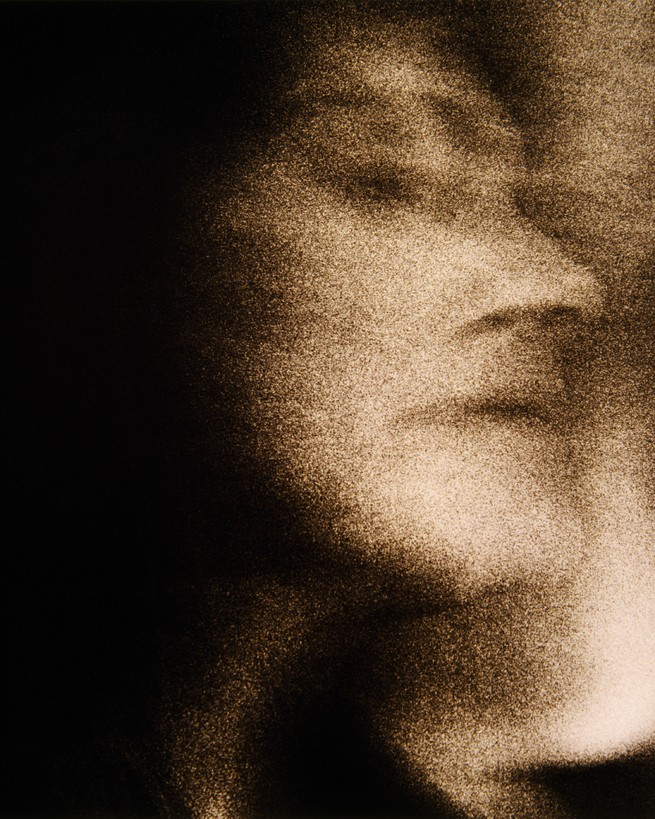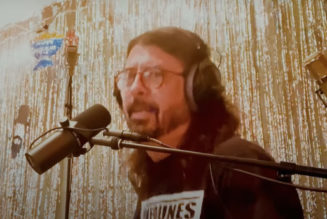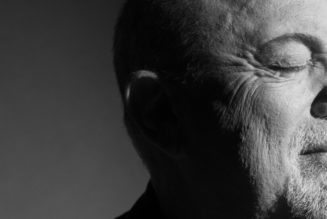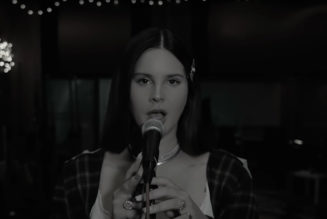This is an edition of The Atlantic Daily, a newsletter that guides you through the biggest stories of the day, helps you discover new ideas, and recommends the best in culture. Sign up for it here.
I was skeptical of music festivals. Then I went to Newport.
First, here are four new stories from The Atlantic:
The Music Goes Gently
I had always assumed that music festivals were not for me.
Music festivals, I thought, were for hot people who like electronic dance music and pulling all-nighters. They’re for rolling on cool new recreational drugs with strange names. They’re for wearing bras as shirts.
But there was something nice about Newport.
Two weekends ago, against the backdrop of Narragansett Bay, Folk Festival–goers sat on picnic blankets and slathered themselves with mineral sunscreen. They were dorky dads in Life Is Good T-shirts, old ladies wearing wide-brimmed hats, and babies sleeping peacefully in strollers. Sure, some people were probably on drugs—but they were chill drugs, the kind that I’d heard of.
The vibes? They were excellent.
All of this is likely common knowledge among festival-knowers and New Englanders, but for this Midwesterner, the Newport Folk Festival was a pleasant surprise. Yes, at first I cringed at the warm-and-fuzzy signage demanding that all guests “Be present. Be kind. Be open. Be together.” But then I thought, “Okay, sure.” And I let it all in.
The Newport Folk Festival happens every summer at Fort Adams State Park, the home of a pentagonal fort that was an active Army post for 100 years—but, according to its director of visitor experience, “never once had to fire a shot in anger.” Of course it didn’t. Because, you see, Newport is peaceful and kind. That’s it’s whole thing. Even the music goes gently.
Performances start a little before noon and end at dusk, which means you have plenty of time for dinner and a good night’s sleep, a shockingly important priority for me these days. I got to hear Maggie Rogers belt “Alaska” and watch Lana Del Rey dance in front of a set of gilded mirrors—but I also saw a dozen smaller bands, whose names I didn’t recognize and who performed tight sets a little under an hour each, tickling banjo strings and warbling tender ballads. One of the stages was powered by bikes and the sun.
“It’s just so wholesome,” I texted my boyfriend one night. I had just witnessed an entire crowd of people clapping as a dog floated by on a boat.
The crowds were intense, but nobody pushed. The food is expensive, but you can bring your own if you want. At one point, a toddler with no pants chased seagulls away from our picnic spot. The only all-nighter pulled was by one of my friends, who stole away to a yacht one night with its handsome captain. That story could have had a sinister ending, but it didn’t. It’s Newport!
Last year, Folk Fest–goers were delighted by an unscheduled appearance from Joni Mitchell, who sang on the main stage with the artist Brandi Carlile. Surprise showings like these have happened so regularly over the past several years that attendees have come to expect them: Paul Simon, Bon Iver, Mumford and Sons, Dolly Parton. This year, though, save for a few quick songs by James Taylor, who stopped by a small stage one afternoon with his wife and son, there was no major unexpected guest. What happened? attendees wondered online and in real life.
Maybe the festival organizers didn’t arrange for a celebrity drop-in on purpose, one Redditor posited, as a way to reset expectations. After all, some regulars are worried that the Newport Folk Festival has gotten too big—that the promise of a surprise appearance is making things feel busier, less low-key. “Maybe,” another Redditor suggested, “the crowd who just wants to see the big names will think twice next year.”
Fighting to safeguard the vital essence of a music festival seems a little pretentious. But maybe there’s something to it. Newport is a gem of an experience; its charm feels well worth protecting.
Newport wasn’t perfect. The ticket prices are way too high to go every year. My patience wore thin on the days when the sun beat down and I couldn’t find shade. And using a port-a potty with 10,000 other people for three consecutive days has taken something from me spiritually that I’ll never get back.
I still wouldn’t call myself a music-festival person. But I can say that my first festival won’t be my last. Sometimes it’s nice to be wrong.
Related:
Today’s News
- Attorney General Merrick Garland has appointed a special counsel for the ongoing Hunter Biden investigation.
- At least 55 people have died from wildfires in Maui as the death toll continues to rise.
- President Volodymyr Zelensky has fired all of the Ukrainian army’s heads of regional recruitment centers in a battle against wartime corruption.
Dispatches
- The Books Briefing: James McBride’s radical approach to fiction reminds us that novels don’t have to be about an individual, Gal Beckerman writes.
- Up for Debate: The role of taboos in liberal democracies is complex, Conor Friedersdorf notes. How should taboos be utilized?
Explore all of our newsletters here.
Evening Read
Earlier this month, the Uyghur poet Tahir Hamut Izgil published his memoir, Waiting to Be Arrested at Night. The book is a chronicle of Izgil and his family’s escape from China in 2017, during the ongoing Uyghur genocide in the country. Izgil first published an account of his experience in The Atlantic in 2021, in a series of essays titled “One by One, My Friends Were Sent to the Camps.” Spend time with Izgil’s essays this weekend.
When I spoke with Izgil recently, he described the book, and his work in The Atlantic, as a way to “raise awareness as much as possible about the crisis in my homeland”—but also to explore “what it means for an individual to go through the kinds of things that we had to go through.” That personal element, as well as what his translator, Joshua L. Freeman, has called “a poet’s power of expression,” is perhaps why Izgil’s writing has resonated with so many readers.
— Isabel Fattal, senior editor
More From The Atlantic
Culture Break

Read. Lament for Julia, a newly published book by the late novelist Susan Taubes, further reveals her struggle to make herself whole.
Watch. The Atlantic’s new partnership with PBS, Washington Week With The Atlantic, will be moderated by editor in chief Jeffrey Goldberg and premieres on PBS tonight at 8 p.m. ET.
P.S.
Fellow Atlantic writer Tom Nichols here, sneaking into Elaine’s appreciation of the Newport Folk Festival to make a confession: I have lived in and around Newport for going on 30 years … and yet I’ve never gone to the festival.
Like so many residents of destination spots and beach towns, I have perfected grousing about tourists—and yes, I know, it’s unseemly, especially when the Folk folks are so nice (and contribute so much to the local economy). But we’re an island, you see: Newport is the “island” part of “Rhode Island.” Our local roads were laid out when this area was mostly farms surrounding a big Navy base. So when people come to “be present and be kind,” I growl and mutter about restaurant crowds and the traffic bottleneck on Thames Street and how I love it here—in October.
The thing is, I’m also kind of lying. The people who come here for the music, as Elaine found, are lovely, and these events (we have a jazz festival, too) really do add a sparkle to a place that’s pretty quiet most of the year. So ignore my grumbling—but could you not park near the post office? I have some errands to run.
— Tom
Katherine Hu contributed to this newsletter.
When you buy a book using a link in this newsletter, we receive a commission. Thank you for supporting The Atlantic.









